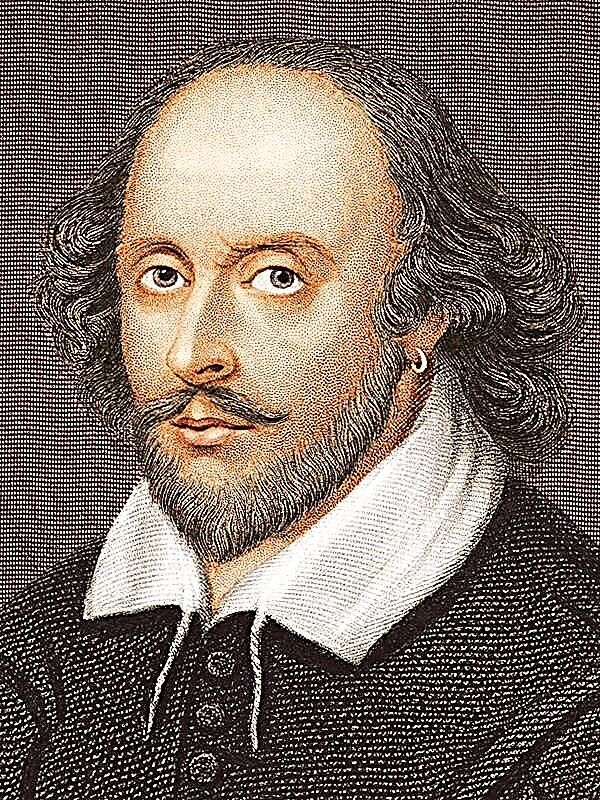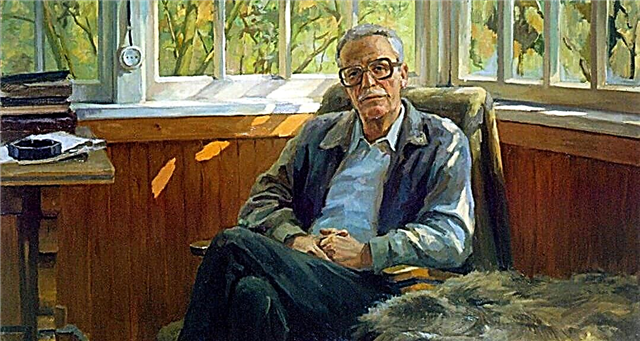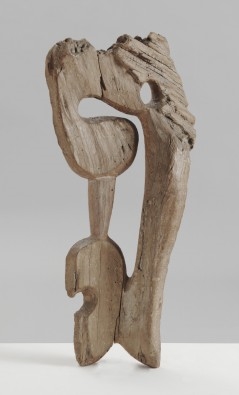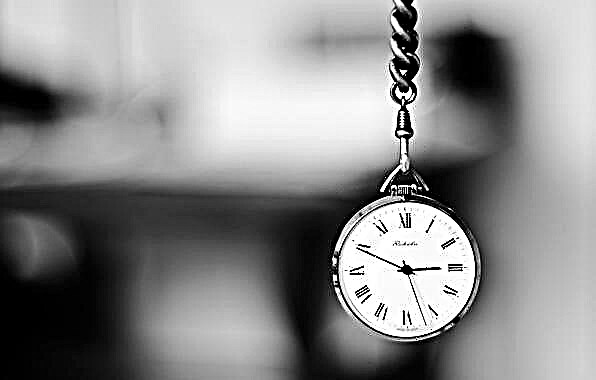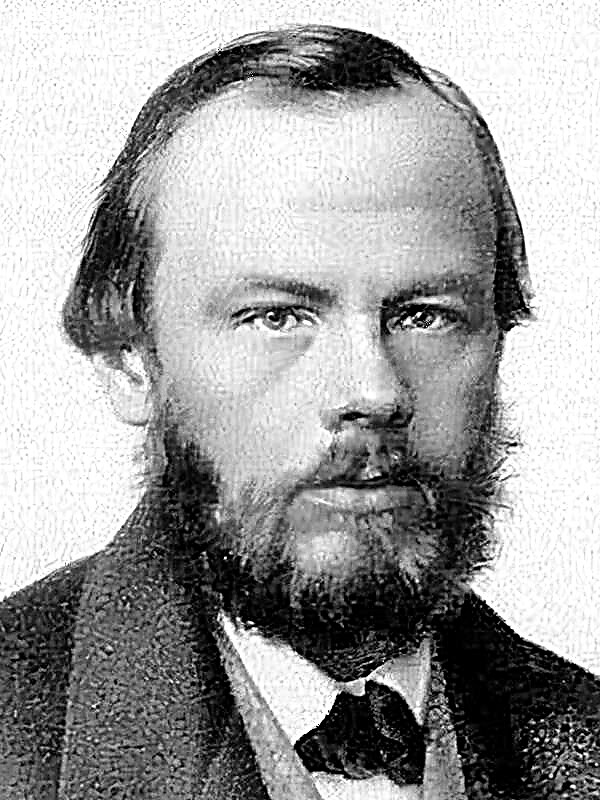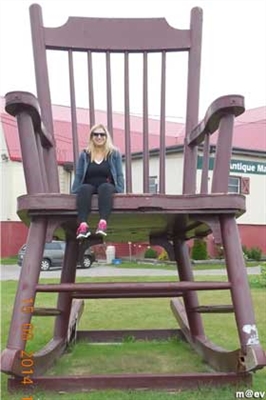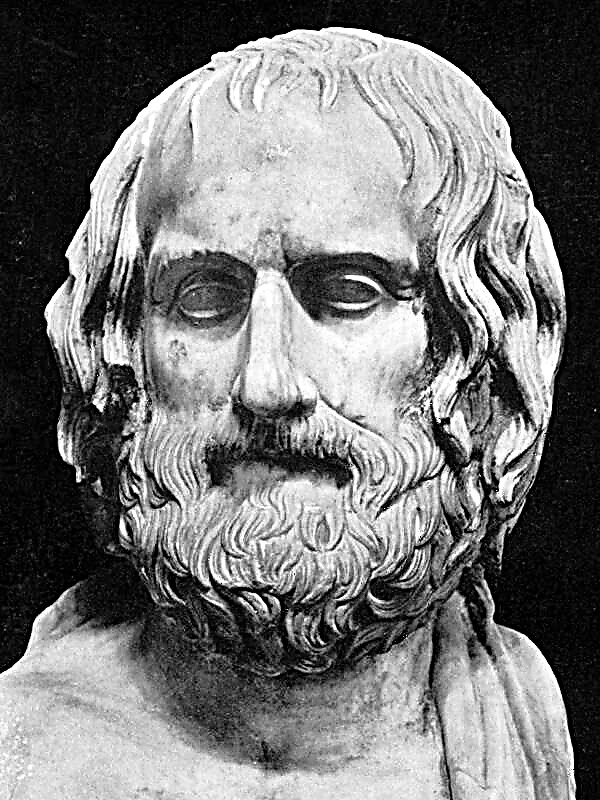In the preface to the second edition of letters in 1793, the author draws the attention of readers that he did not dare to make changes in the style of narration - the lively, sincere impressions of an inexperienced young heart, deprived of the caution and legibility of a sophisticated courtier or experienced professor. He began his journey in May 1789.
In the first letter sent from Tver, the young man talks about the fact that the fulfilled dream of traveling caused in his soul the pain of parting with everything and everyone, which was dear to his heart, and the sight of the receding Moscow made him cry.
Difficulties awaiting travelers on the road distracted the hero from sad experiences. Already in St. Petersburg it turned out that the passport obtained in Moscow does not give the right to a sea voyage, and the hero had to change his route and experience inconvenience from the endless breakdowns of wagons, wagons and wagons.
Narva, Palanga, Riga - travel impressions made the Traveler call himself in a letter from Memel “a knight of a cheerful image”. The traveler's cherished dream was a meeting with Kant, to whom he went on the day of his arrival in Koenigsberg, and was received without delay and warmly, despite the absence of recommendations. The young man found that with Kant "everything is simple, except for <...> his metaphysics."
Having reached Berlin quite quickly, the young man hastened to inspect the Royal Library and the menagerie in Berlin, mentioned in the descriptions of the city made by Nikolai, whom the young Traveler soon met.
The author of the letters did not miss the opportunity to attend the presentation of the next Kotzebue melodrama. In Sanssouci, he did not fail to note that the amusement castle characterizes King Frederick as a philosopher, a connoisseur of arts and sciences, rather than as an sovereign ruler.
Arriving in Dresden, the Traveler went to inspect the art gallery. He not only described his impressions of the famous canvases, but also added biographical information about the artists: Rafael, Correggio, Veronese, Poussin, Giulio Romano, Tintoretto, Rubens and others. The Dresden library attracted his attention not only with the size of the book collection, but also the origin of some antiquities. Former Moscow professor Mattei sold the elector for a thousand and a half thalers a list of one of the tragedies of Euripides. “The question is, where did Mr. Mattei get these manuscripts?”
From Dresden, the author decided to go to Leipzig, describing in detail the pictures of nature that open to the view from the window of the mail carriage or long walks. Leipzig struck him with an abundance of bookstores, which is natural for a city where book fairs are held three times a year. In Weimar, the author met with Herder and Wieland, whose literary works he knew well.
In the vicinity of Frankfurt, he never ceased to be amazed at the beauty of landscapes reminiscent of the works of Salvator Rosa or Poussin. A young Traveler, sometimes speaking of himself in the third person, crosses the French border, but suddenly finds himself in another country, without explaining in any way the reason for the change of route in the letters.
Switzerland - the land of "freedom and prosperity" - began for the author from the city of Basel. Later, in Zurich, the author met with Lafater on several occasions and attended his public appearances. Further letters of the author are often marked only by the hour of writing the letter, and not by the usual date, as before. The events taking place in France are indicated very carefully - for example, a chance meeting with Count D’Artua with a retinue intending to go to Italy is mentioned.
The traveler enjoyed walks in the Alpine mountains, lakes, visited memorable places. He discusses the peculiarities of education and expresses the judgment that in Lausanne one should study the French language, and comprehend all other subjects in German universities. Like any well-read traveler, the author of the letters decided to explore the surroundings of Lausanne with a volume of Rousseau's “Eloise” (“Julia, or New Eloise” - a novel in letters) in order to compare his personal impressions of the places where Rousseau settled his “romance lovers”, with literary descriptions.
The village of Ferney was also a place of pilgrimage, where Voltaire lived “the most glorious of the writers of our century”. The Traveler noted with pleasure that a portrait of the Russian Empress with the inscription in French: “Presented to Voltaire by the author”, hanged on silk on the wall of the room of the bedroom of the great old man.
On December 1, 1789, the author was twenty-three years old, and from early morning he went to the shore of Lake Geneva, reflecting on the meaning of life and remembering his friends. After spending several months in Switzerland, the Traveler went to France.
The first French city on its way was Lyon. The author was interested in everything - the theater, the Parisians, who were stuck in the city and awaiting departure to other lands, antique ruins. The ancient arcades and the remains of the Roman aqueduct made the author think about how little his contemporaries think about the past and future, do not try to "plant an oak tree without the hope of resting in his shadow." Here in Lyon, he saw the new tragedy of Chenier “Charles IX” and described in detail the reaction of the audience who saw in the play the current state of France. Without this, the young Traveler writes, the play could hardly have impressed anywhere.
Soon the writer leaves for Paris, impatiently before meeting with the great city. It describes in detail the streets, houses, people. Anticipating the questions of interested friends about the French Revolution, he writes: "Do not think, however, that the whole nation should participate in the tragedy that is now being played in France." The young Traveler describes his impressions of a meeting with the royal family, accidentally seen by him in the church. He does not dwell on details, except for one - the purple color of clothes (the color of mourning, adopted at court). He is amused by the play of Bully “Peter the Great”, played by the actors very diligently, but testifying to insufficient knowledge of both the author of the play and the designers of the performance in the peculiarities of Russian life. The author addresses his arguments about Peter the Great more than once in his letters.
He happened to meet with Mr. Levek, the author of "Russian History", which gives him reason to speculate on historical works and the need for such work in Russia. The role model of him seems to be the works of Tacitus, Hume, Robertson, Gibbon. The young man compares Vladimir with Louis XI, and King John with Cromwell. The author believes that the biggest drawback of the historical work about Russia that has come out of Levek’s pen is not so much the lack of liveliness of the syllable and the pallor of colors, but the attitude to the role of Peter the Great in Russian history.
The path of education or enlightenment, the author says, is the same for all peoples, and, taking as a model for imitation already found by other peoples, Peter acted reasonably and far-sighted. “To choose the best in everything is the action of the enlightened mind, and Peter the Great wanted to enlighten the mind in all respects.” The letter, marked on May 1790, contains other interesting thoughts of the young author. He wrote: “All things of the people are nothing before man. The main thing is to be people, not Slavs. "
It seems that the young Traveler traveled everywhere - theaters, boulevards, Academies, coffee houses, literary salons and private homes. At the Academy, he was interested in the French Language Lexicon, which earned praise for its rigor and purity, but was convicted of the lack of proper completeness. He was interested in meeting rules at the Academy, established by Cardinal Richelieu. Conditions for admission to another Academy - the Academy of Sciences; the activities of the Academy of Inscriptions and Literature, as well as the Academy of Painting, Sculpture, Architecture.
Coffee houses attracted the author’s attention by the opportunity for visitors to speak publicly about the latest in literature or politics, gathering in cozy places where you can see Parisian celebrities and ordinary people who have wandered off to listen to poetry or prose reading.
The author is interested in the history of the Iron Mask, the entertainment of commoners, the construction of hospitals or special schools. He was struck by the fact that deaf and dumb students of one school and blind students of another are able to read, write and judge not only about grammar, geography or mathematics, but also able to reflect on abstract matters. A special convex font allowed blind students to read the same books as their sighted peers.
The streets of Paris remind the author of historical events correlated with what can be seen in modern France. Hence the reasoning about Henry IV or Philip the Beautiful.
The beauty of the Bois de Boulogne and Versailles did not leave the sensitive heart indifferent, but it is time to leave Paris and go to London - the goal set back in Russia. “Paris and London, the first two cities in Europe, were the two Pharoses of my journey when I composed his plan.” On a packet boat from Calais, the author continues his journey.
The very first English impressions of the author testify to the long-standing interest in this country. He admires the ubiquitous order and "the kind of contentment, although not luxury, but abundance."
The first acquaintance with the best English public took place in Westminster Abbey at the annual performance of Handel's oratorio "Messiah", where the royal family was present. The young man recognized the people of other classes in the most unexpected way. He was surprised by the hotel maid, discussing the heroes of Richardson and Fielding and preferring Lovelace to Grandison.
The author immediately drew attention to the fact that well-educated Englishmen, who usually know French, prefer to express themselves in English. “What a difference with us!” - the author exclaims, regretting that in our “good society” one cannot do without the French language.
He visited the London courts and prisons, delving into all the circumstances of the proceedings and the maintenance of criminals. He noted the benefits of a jury trial, in which a person’s life depends only on the law, and not on other people.
The hospital for the insane - Bedlam - made him think about the causes of insanity in this century, insanity, which did not know the previous era. The physical causes of insanity are much less than the moral ones, and the mode of modern life contributes to what can be seen in the light of both the ten-year and sixty-year-old Sappho.
London Tarr, a Greenwich hospital for the elderly sailors, a meeting of Quakers or other Christian sects, St. Paul’s Cathedral, Windsor Park, the Stock Exchange and the Royal Society - all attracted the attention of the author, although, in his own remark, “London does not have so many notes worthy of things, like Paris. "
The traveler dwells on the description of types (noting the fidelity of Hogarth's drawings) and mores, especially dwelling on the customs of London thieves with their own clubs and taverns.
In the English family life, the author is attracted by the goodwill of the English women, for whom going out or to a concert is a whole event. Russian high society strives to always be at a party or receive guests. The author of the letters blames the morals of wives and daughters on men.
He describes in detail an unusual form of amusement for Londoners of all classes - Voxal.
His reasoning about English literature and theater is very strict, and he writes: “I repeat: the English have only Shakespeare! All their newest tragedies only want to be strong, but in fact they are weak in spirit. ”
Concluding his journey through England, the author says: “Another time I would have come to England with pleasure, but I will leave it without regret.”
The last letter of the Traveler was written in Kronstadt and is full of anticipation of how he will remember what he experienced, “to be sad with my heart and console myself with friends!”.



